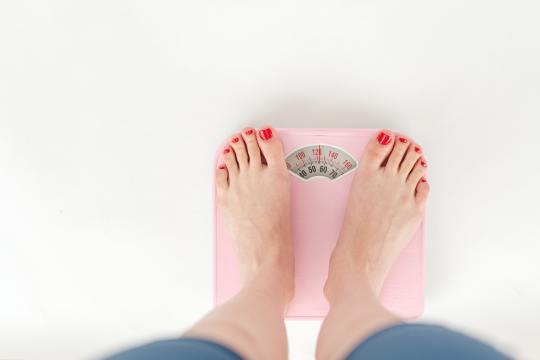#Weight Loss Supplements
Explore tagged Tumblr posts
Text
Can certain foods or supplements help with weight loss?

Certain foods and supplements can support weight loss, but they aren’t magic solutions. Here’s the scoop:
Foods
High-Protein Foods:
Chicken & Fish: Lean meats are great because they provide high-quality protein without too much fat. Fish like salmon also provide omega-3 fatty acids, which can promote fat loss and improve metabolic health.
Tofu & Legumes: These are excellent plant-based protein sources. They help maintain muscle mass during weight loss and keep you full for longer periods.
Fiber-Rich Foods:
Whole Grains: Brown rice, quinoa, and oats are packed with fiber. They take longer to digest, keeping you full and reducing the urge to snack.
Fruits & Veggies: Apples, berries, broccoli, and carrots are low in calories but high in fiber and nutrients. They help maintain steady blood sugar levels, preventing energy crashes and hunger pangs.
Beans: Black beans, lentils, and chickpeas are great for adding bulk to your meals without adding too many calories. They are also high in protein.
Healthy Fats:
Avocados: Rich in monounsaturated fats, they can help regulate appetite hormones.
Nuts: Almonds, walnuts, and pistachios provide a good balance of protein, fiber, and healthy fats, making them perfect for snacks.
Olive Oil: Using olive oil in moderation instead of butter or other fats can support weight loss by providing healthy fats that help with satiety.
Green Tea:
Contains catechins, which may help boost metabolism and increase fat burning, especially during exercise. Drinking a few cups a day can contribute to overall calorie burn.
Water-Rich Foods:
Foods with high water content can help you feel full with fewer calories. They are also generally low in energy density, which means you can eat larger portions without
Supplements
Green Tea Extract:
This supplement contains concentrated doses of the beneficial compounds in green tea. It’s often used to increase fat oxidation during exercise and enhance metabolic rate.
Glucomannan:
A natural dietary fiber derived from the root of the konjac plant. It absorbs water and expands in your stomach, making you feel full and reducing calorie intake.
Protein Powder:
Useful for people who struggle to get enough protein through food alone. It helps with muscle repair and growth, which can boost metabolism since muscle tissue burns more calories than fat.
Caffeine:
Found in coffee, certain teas, and supplements. It can enhance fat burning and boost metabolic rate in the short term. However, it’s important to consume it in moderation to avoid negative side effects like jitteriness and sleep disturbances.
Probiotics:
These beneficial bacteria can improve gut health, which is increasingly recognized as playing a role in weight regulation. Some strains of probiotics may help with weight loss by improving digestion and nutrient absorption.
Key Points to Remember
Balanced Diet: No single food or supplement can replace the benefits of a well-rounded diet. Incorporating a variety of nutrient-dense foods is essential.
Exercise: Physical activity is crucial for burning calories, building muscle, and improving overall health.
Consistency: Sustainable weight loss comes from long-term changes in diet and lifestyle, not quick fixes.
Medical Advice: Always consult with a healthcare provider before starting any new supplement, especially if you have underlying health conditions or are taking other medications.
Combining these foods and supplements with a healthy lifestyle can help you achieve and maintain your weight loss goals more effectively.
Note: "Burn Fat 24/7 with This All-Natural Weight Loss Solution!"
#weightloss#weight loss#fatloss#lose weight#diet to lose weight#healthy#health#fat loss#fatlosstips#losing weight#weight loss supplements#weight loss motivation#weight loss success stori#weight loss tips#lose weight fast#intermittent fasti#i need to lose so much weight#i need to lose this weight#i need to be weightless#fat loss transformation#weight loss journey#how to lose weight#weight management#dieting#weight loss foods#fat loss foods#weight loss recipes
9 notes
·
View notes
Text
Which at-home exercises are best for rapid weight loss?
If you’re looking to shed weight fast without stepping foot in a gym, at-home exercises can be a game-changer! Here are some of the best at-home exercises that help boost calorie burn, build muscle, and accelerate fat loss:

1. HIIT (High-Intensity Interval Training)
HIIT workouts alternate between short, intense bursts of exercise and brief rest periods. They are highly effective for burning fat in a short amount of time. Example moves include:
Jumping jacks
Burpees
Mountain climbers
High knees A 20-minute HIIT session can burn more calories than a regular workout!
2. Bodyweight Strength Training
Building muscle helps boost your metabolism, allowing you to burn more calories throughout the day. Include moves like:
Push-ups
Squats
Lunges
Planks These exercises target multiple muscle groups at once, giving you a full-body burn!
3. Jump Rope
Jumping rope is an amazing cardio workout that torches calories fast. Just 10 minutes of jumping rope can burn as many calories as a 30-minute jog!
4. Dancing
Dancing is a fun way to burn calories while enjoying yourself. Put on some music and dance for 20-30 minutes to get your heart rate up and start sweating!
5. Walking or Running in Place
Don’t have space to run outside? Running in place or doing brisk walking at home can still help you burn calories. Add intervals of sprints for an extra calorie boost.
6. Yoga
Yoga isn’t just for relaxation—it can help build strength, improve flexibility, and enhance fat-burning. Try power yoga or flows that engage your core and legs for maximum effect.
Ready to Kickstart Your Weight Loss Journey?
Want to take your results to the next level? Combine these exercises with a science-backed weight loss plan! Check out [this program](your Clickbank product link) that’s helped thousands lose weight fast and keep it off.
Click here to start your transformation today! 👇 Get Started with Your Weight Loss Journey
Incorporating these exercises into your daily routine will make a huge difference in your weight loss journey, and with the right plan, you’ll see results fast!
#weightlossjourney#smoothies#weight loss supplements#beingmyowninspiration#behappy#weightlosssupport
4 notes
·
View notes
Text
The Connection Between Sleep and Weight Loss

The Science of Sleep and Weight Management
Hormonal Regulation
Sleep significantly influences two crucial hunger-regulating hormones:
Leptin (the satiety hormone):
Secreted by fat cells to signal fullness
Sleep deprivation reduces leptin levels by up to 15%
Lower leptin levels increase appetite and cravings
Ghrelin (the hunger hormone):
Produced in the stomach to stimulate appetite
Insufficient sleep increases ghrelin production
Higher ghrelin levels lead to increased hunger and caloric intake
Metabolic Effects
Poor sleep impacts your metabolism through several mechanisms:
Insulin Sensitivity
Sleep loss reduces insulin sensitivity by 30%
Decreased insulin sensitivity promotes fat storage
Blood sugar regulation becomes impaired
Cortisol Regulation
Sleep deprivation elevates cortisol (stress hormone)
High cortisol promotes abdominal fat storage
Evening cortisol spikes interfere with sleep quality
Energy Expenditure
Lack of sleep reduces resting metabolic rate
Physical activity levels typically decrease
Recovery from exercise is compromised
Sleep’s Impact on Weight-Related Behaviors
Decision Making and Food Choices
Research shows sleep-deprived individuals:
Consume an average of 385 extra calories daily
Show increased activation in brain reward centers when viewing high-calorie foods
Make poorer food choices, favoring carbohydrate-rich and fatty foods
Exercise Performance
Inadequate sleep affects physical activity by:
Reducing exercise motivation
Decreasing endurance capacity
Impairing muscle recovery
Increasing perceived exertion during workouts
Frequently Asked Questions (FAQs)
1. How much sleep do I need to support weight loss?
Most adults require 7–9 hours of quality sleep per night. Studies show individuals getting less than 6 hours of sleep have a 55% higher risk of obesity.
2. Does the quality of sleep matter as much as quantity?
Yes, sleep quality is equally important. Deep sleep stages are crucial for hormonal regulation and metabolism. Poor quality sleep, even if long enough, can negatively impact weight management.
3. Can sleep debt affect my weight loss efforts?
Yes, accumulated sleep debt can disrupt metabolic processes and hormone levels. Even short-term sleep debt can increase appetite and reduce insulin sensitivity.
4. What’s the best bedroom temperature for quality sleep?
The optimal bedroom temperature for sleep is between 65–68°F (18–20°C). This range supports both quality sleep and mild calorie burning through brown fat activation.
5. How does shift work affect weight management?
Shift work can disrupt circadian rhythms, leading to metabolic changes and weight gain. People working night shifts often struggle more with weight management due to disrupted sleep-wake cycles.
6. Can certain foods improve sleep quality?
Foods rich in tryptophan, magnesium, and complex carbohydrates can support better sleep. Examples include:
Turkey
Bananas
Almonds
Whole grain oats
Tart cherries
GET Night Mega Burner
7. How long before bed should I stop eating?
Ideally, stop eating 2–3 hours before bedtime. This allows proper digestion and helps maintain stable blood sugar levels during sleep.
8. Does sleeping right after exercise affect weight loss?
While rest after exercise is important, try to maintain at least a 1-hour gap between intense exercise and bedtime. This allows your body temperature and hormone levels to normalize.
9. Can sleep medications impact weight loss?
Some sleep medications can affect metabolism and appetite. It’s better to focus on natural sleep improvement strategies unless medication is prescribed by a healthcare provider.
10. How does stress affect sleep and weight loss?
Chronic stress can:
Disrupt sleep patterns
Increase cortisol levels
Promote emotional eating
Interfere with weight loss efforts
11. What’s the relationship between sleep apnea and weight?
Sleep apnea and weight form a vicious cycle:
Excess weight increases sleep apnea risk
Sleep apnea disrupts quality sleep
Poor sleep makes weight loss more difficult
Treatment of sleep apnea often improves weight loss success
Conclusion
The connection between sleep and weight loss is more significant than many realize. Quality sleep serves as a cornerstone of successful weight management by regulating hormones, metabolism, and behavior. Prioritizing good sleep hygiene alongside proper nutrition and exercise creates a powerful foundation for achieving and maintaining a healthy weight.
GET Night Mega Burner
Remember that sustainable weight loss requires a holistic approach. While sleep alone won’t guarantee weight loss, neglecting sleep can significantly hinder your weight loss efforts. Focus on establishing consistent sleep patterns and creating an environment conducive to quality rest to support your weight management journey.
#nutrition#weight loss#Night Mega Burner#Weight Loss Supplements#Fat Burning Supplements#Overnight Fat Burners#Appetite Suppressants#Nighttime Weight Loss#Sleep and Weight Loss#Metabolism Boosters#Natural Weight Loss Aids#Fat Loss During Sleep#Caffeine-Free Weight Loss Supplements#Herbal Weight Loss Products#L-Carnitine for Weight Loss#Garcinia Cambogia for Weight Loss#Choline L-Bitartrate Benefits#Inositol for Weight Management#Inulin as an Appetite Suppressant#Bitter Orange Extract for Fat Burning
2 notes
·
View notes
Text
Best Menopause Supplements for Weight Loss

Effective Weight Management During Menopause: The Role of Supplements and Lifestyle Changes
IntroductionMenopause is a natural phase in every woman's life, but it can bring about significant changes, particularly in weight management. During this time, hormonal shifts make it more challenging to maintain or lose weight. Managing weight gain during menopause is essential for overall health and well-being, helping women stay active and confident as they transition through this phase.
Understanding Menopause and Weight GainMenopause triggers hormonal changes, particularly a drop in estrogen levels, which affects metabolism and body composition. As metabolism slows, women may notice increased fat around the abdomen and difficulty losing weight, even with healthy eating and exercise habits. Additionally, these changes can lead to muscle loss, making it harder to burn calories efficiently. Weight gain during menopause is a common struggle, but understanding the factors behind it can help women find effective solutions.
The Role of Supplements in Weight ManagementSupplements can play an important role in supporting weight loss during menopause. The right supplements can help balance hormones, boost metabolism, and improve energy levels. It’s crucial to choose supplements that are specifically designed for menopause, as they target the unique challenges women face during this stage. Supplements can provide additional support where diet and exercise alone may fall short, promoting better weight management and overall health.
Key Ingredients to Look for in Menopause Supplements

When choosing menopause supplements, it’s important to focus on ingredients that have been shown to support weight loss. Key ingredients include:
Calcium and Vitamin D: These help maintain bone health and reduce the risk of osteoporosis, which becomes a concern during menopause.
Omega-3 Fatty Acids: These healthy fats help reduce inflammation, support heart health, and can aid in weight loss by regulating metabolism.
Green Tea Extract: Known for its fat-burning properties, green tea extract boosts metabolism and helps burn calories more effectively.
Black Cohosh: This herbal extract is often used to balance hormones and reduce menopause symptoms like hot flashes, which can also impact weight.
Magnesium: Magnesium helps regulate blood sugar and insulin levels, making it easier to control cravings and manage weight.
Top Menopause Supplements Offered by Sonia Marie NutritionSonia Marie Nutrition offers a range of menopause supplements that are designed to support women during this phase of life. Each supplement is formulated with specific ingredients to help balance hormones and promote weight loss. Women who have used these supplements report feeling more energized, experiencing fewer menopause symptoms, and achieving better control over their weight.
Personalised Solutions for Individual NeedsOne size does not fit all, especially when it comes to managing weight during menopause. Sonia Marie Nutrition tailors supplement recommendations based on individual health profiles, ensuring that each woman gets the support she needs. Personalised nutrition plans take into account specific symptoms, lifestyle, and health goals, making the journey to better health more manageable and effective. Sonia offers consultations to create a customized plan for each client, addressing their unique needs.
Additional Lifestyle Tips for Weight ManagementIn addition to using menopause supplements, making lifestyle changes can greatly enhance weight management efforts. Focus on a balanced diet rich in whole foods, fruits, vegetables, lean proteins, and healthy fats. Regular exercise, such as strength training and cardio, can boost metabolism and support muscle retention. Stress management techniques, like mindfulness and yoga, can also help control emotional eating and reduce weight gain triggered by hormonal changes.
Booking a Consultation with Sonia Marie NutritionBooking a free 15-minute consultation with Sonia Marie Nutrition is easy. During the consultation, you’ll receive personalized advice on managing weight during menopause, tailored supplement recommendations, and guidance on making lifestyle changes. Sonia offers support to women in the USA, Canada, Australia, and beyond, making it convenient for clients around the world to access her expertise.
Frequently Asked QuestionsMany women have concerns about the safety and effectiveness of menopause supplements. Sonia Marie Nutrition provides clear guidance on how to use these supplements safely and effectively. Common questions include whether the supplements are natural, how long they take to work, and how they should be combined with diet and exercise. For any additional queries, Sonia Marie Nutrition is available to provide answers and support.
Conclusion Managing weight during menopause can be challenging, but with the right supplements and personalised support, it becomes much more achievable. Sonia Marie Nutrition offers high-quality menopause supplements and expert guidance to help women regain control over their weight and feel their best. Explore the options available and take the first step toward a healthier, balanced lifestyle. Book online consultation with Sonia Marie Nutrition today. Whether you're in the USA, Canada, or Australia, contact us directly at (818)-864-6540 to get started on your journey to better health.
#menopause weight loss plan#weight loss supplements#diet plan for weight loss#best menopause supplements for weight loss#healthy diet plan for weight loss#Best Nutritionist in USA#Dietitian and Nutritionist in USA#Canada#Australia
2 notes
·
View notes
Text
Best WEIGHT Loss supplement to REACH Fast Result ( click link below)

#weight loss supplements#i wanna lose weight#weight loss#fat loss#i need to lose so much weight#before and after#diet plan#weight loss journey
3 notes
·
View notes
Text




Stay Strong- Mind and Body!!
Check out this Proven Weight Loss Fat Blasting Supplement!
Click the Link!
https://sites.google.com/view/weight-loss-done-great/home
#healthy weight loss#fatburner#i wanna lose weight#weight loss#help me lose weight#fat loss#nutrition#weight loss journey#crossfit girls#workout#i wanna be skinnier#weight loss supplements#i need to lose so much weight
4 notes
·
View notes
Text
Losing weight is fucking hard as he'll
But I am getting there
Diet, exercise, supplement
Just doing those three things and
WOW
https://shorturl.at/BKVY0
3 notes
·
View notes
Text
How to Use the Right Vitamins and Supplements for Weight Loss?

At Polk Concierge Medical, we offer personalized wellness services for men and women in South Lakeland. Our services include weight loss medications, testosterone replacement therapy, hormone therapy, and more. We also provide weight loss consultations, office lab testing, and essential weight loss products such as vitamins and supplements. Our team of medical professionals has the expertise and experience to help you achieve your health goals, whether you want to lose weight, balance your hormones, or improve your overall wellness. We use natural hormone replacement and bio identical hormone replacement methods to ensure the best results for your body and mind. We also support you throughout your weight loss journey with guidance, encouragement, and accountability. Polk Concierge Medical is more than just a clinic, it's your partner in health.
#Weight Loss supplements#Weight Loss products#Weight Loss journey#Vitamins and Supplements#Office Lab Testing
3 notes
·
View notes
Text
How does stress influence weight gain or loss?

Stress is an inevitable part of life, affecting us mentally, emotionally, and physically. One of the physical effects it can have is on weight, leading either to weight gain or weight loss, depending on several factors. Understanding the complex relationship between stress and body weight can provide valuable insights into managing both effectively.
The Biology of Stress
Before diving into how stress affects weight, it's essential to understand what happens in the body when you're stressed. Stress triggers the body's "fight or flight" response, which is a natural reaction designed to protect you in dangerous situations. When you feel threatened, your body releases a flood of stress hormones, including adrenaline and cortisol. These hormones prepare you to face the danger by increasing your heart rate, blood pressure, and energy supplies.
Adrenaline gives you an initial burst of energy and can suppress your appetite temporarily. However, cortisol, the primary stress hormone, remains elevated for longer periods and has more complex effects on your body. When stress becomes chronic, cortisol levels can remain high for extended periods, affecting various bodily functions, including metabolism and appetite regulation.
How Stress Leads to Weight Gain
Increased Appetite and Cravings: One of the most well-known effects of stress is an increase in appetite, particularly cravings for high-calorie, high-fat, and sugary foods. This is often referred to as "stress eating." When cortisol levels rise, your body seeks quick energy sources, which leads to a preference for comfort foods that are rich in fat, sugar, and salt. These foods may temporarily make you feel better by triggering the brain's reward system, but they can also lead to weight gain if consumed regularly during stressful times. Emotional eating, where people eat not because they are physically hungry but because they are trying to cope with their emotions, is another factor in weight gain during stress. Stress eating becomes a way to soothe negative emotions like anxiety, frustration, or sadness, but it doesn’t address the underlying issues.
Slowed Metabolism: Chronic stress can slow down your metabolism. Research has shown that people under constant stress may burn fewer calories than those who are not stressed. Cortisol can influence fat distribution, leading to more fat being stored, particularly around the abdomen. Abdominal fat is not only aesthetically undesirable for many but also increases the risk of cardiovascular disease and other metabolic issues like insulin resistance and type 2 diabetes.
Lack of Physical Activity: When people are stressed, they often have less time and motivation for physical activity. Exercise is one of the most effective ways to manage stress, but when life becomes overwhelming, exercise is often the first thing to go. The combination of reduced physical activity and increased calorie intake can easily lead to weight gain.
Sleep Disruptions: Stress often interferes with sleep, leading to insomnia or poor-quality sleep. Sleep is crucial for maintaining a healthy metabolism and regulating hormones that control hunger and fullness, such as ghrelin and leptin. Sleep deprivation can increase hunger, especially cravings for calorie-dense foods, while impairing your ability to feel full. Over time, this imbalance can contribute to weight gain.
Social and Environmental Factors: In stressful situations, social and environmental factors can also contribute to weight gain. For example, people who work in high-stress jobs or live in stressful environments may have limited access to healthy foods or time to cook meals, relying instead on fast food or processed snacks. Stressful work environments can also lead to sedentary behavior, such as sitting at a desk all day, further exacerbating the risk of weight gain.
How Stress Leads to Weight Loss
While stress is often associated with weight gain, some people experience the opposite and lose weight during stressful periods. The factors contributing to weight loss during stress are different but still tied to the body's stress response.
Loss of Appetite For some people, stress has the opposite effect on appetite, causing them to eat less. The fight-or-flight response triggered by adrenaline can suppress hunger, making it difficult for some to eat, even if they know they should. Chronic stress, when severe enough, can lead to ongoing appetite suppression, resulting in unintended weight loss.
Digestive Problems Stress can wreak havoc on the digestive system. It can cause nausea, stomach cramps, or even irritable bowel syndrome (IBS), all of which can interfere with regular eating patterns. When your digestive system isn't functioning properly, it can lead to a decreased absorption of nutrients, further contributing to weight loss.
Hyperactivity While some people turn to food for comfort during stressful times, others might experience an increase in hyperactivity or restlessness. Constant movement, fidgeting, or pacing due to anxiety can increase calorie expenditure. Though the increase in calorie burn may seem slight, it can add up over time, leading to weight loss in individuals prone to stress-induced restlessness.
Chronic Conditions In some cases, chronic stress can exacerbate underlying health conditions that lead to weight loss. Conditions like hyperthyroidism, caused by an overactive thyroid gland, can be triggered or worsened by stress, leading to unintentional weight loss. Stress can also weaken the immune system, making the body more vulnerable to infections or illnesses that may cause weight loss.
The Role of Cortisol in Weight Gain and Loss
Cortisol plays a central role in determining whether stress leads to weight gain or weight loss. As mentioned earlier, cortisol increases appetite and can lead to cravings for unhealthy foods. However, its effects on metabolism, fat storage, and appetite can vary depending on a person’s physiology and the type of stress they are experiencing.
Acute Stress In the short term, cortisol can suppress appetite as part of the fight-or-flight response. The body focuses on immediate survival, and digestion becomes a low priority. This is why some people lose weight when going through a stressful event, such as preparing for an important exam or dealing with a family emergency.
Chronic Stress When stress becomes chronic, however, cortisol levels remain elevated, and the body shifts into a state where it conserves energy. This leads to increased fat storage, especially in the abdominal region. Chronic stress often leads to weight gain over time because the body is preparing itself for prolonged periods of perceived danger or difficulty.
Psychological Factors Affecting Weight During Stress
Emotional Coping Mechanisms How a person deals with stress on a psychological level can significantly impact whether they gain or lose weight. Some people use food as a coping mechanism, turning to comfort foods during times of stress. Others may be so overwhelmed that they forget to eat or lose their appetite altogether. Understanding your emotional triggers and how you cope with stress can help in managing your weight.
Body Image and Self-Esteem Stress can negatively impact body image and self-esteem. People under chronic stress may feel worse about their bodies, leading to cycles of emotional eating or, conversely, restrictive eating patterns. This relationship between stress and self-esteem can complicate the issue of weight management during stressful periods.
Social Pressure Societal and cultural pressures can also influence how stress impacts weight. For example, the pressure to maintain a certain body size can cause stress in itself, leading to disordered eating habits like binge eating or excessive dieting. Social media and the portrayal of "ideal" bodies can exacerbate feelings of inadequacy, further complicating the relationship between stress and weight.
Managing Stress to Control Weight
Because stress can have such a profound impact on weight, managing it is essential for maintaining a healthy lifestyle. Here are some strategies to help manage stress and prevent its effects on weight:
Regular Exercise Exercise is one of the most effective ways to combat stress. It helps to lower cortisol levels, improve mood through the release of endorphins, and enhance metabolism. Regular physical activity can also help you manage your weight more effectively by burning calories and reducing the likelihood of turning to food for comfort.
Mindful Eating Practicing mindful eating can help you become more aware of your eating habits during stressful times. By paying attention to what you're eating, how much you're eating, and why you're eating, you can prevent stress from leading to overeating or undereating. It’s essential to develop a healthy relationship with food and to recognize when emotions are influencing your eating patterns.
Stress-Relief Techniques Incorporating stress-relief techniques like meditation, deep breathing exercises, yoga, or journaling can help manage stress levels. These practices can reduce the physiological effects of stress and keep cortisol levels in check, minimizing its impact on your weight.
Adequate Sleep Getting enough quality sleep is essential for stress management and weight control. Aim for 7-9 hours of sleep per night, and establish a regular sleep routine to improve your sleep quality. Adequate sleep helps regulate hormones related to hunger and metabolism, making it easier to maintain a healthy weight.
Healthy Diet Choices Eating a balanced diet rich in whole foods, fruits, vegetables, lean proteins, and healthy fats can help mitigate the effects of stress on your body. Avoiding processed foods, sugary snacks, and excessive caffeine or alcohol can reduce the likelihood of stress-related weight gain.
Social Support Leaning on friends, family, or a support network during stressful times can provide emotional relief and reduce the tendency to turn to food for comfort. Sharing your feelings with others can help reduce feelings of isolation and decrease the burden of stress.
Conclusion
The relationship between stress and weight is complex and varies from person to person. While some people may gain weight due to increased appetite, slowed metabolism, and emotional eating, others may lose weight due to loss of appetite, digestive issues, or hyperactivity. The role of cortisol is central in determining how stress affects your body, and managing stress is essential for maintaining a healthy weight. By incorporating exercise, mindful eating, stress-relief techniques, adequate sleep, and a healthy diet, you can mitigate the effects of stress on your weight and lead a healthier, more balanced life. Understanding your personal stress responses and taking proactive steps can make all the difference in maintaining both your mental and physical health during challenging times.
P.S. “Unlock the Power of Nature for Fast Weight Loss — Click Here!”
#weightloss#weight loss#fatloss#lose weight#health#diet to lose weight#healthy#fat loss#losing weight#fatlosstips#weight loss supplements#weight loss motivation#weight loss success stori#weight loss diet#weight loss tips#weight goals#lose weight fast#diet#intermittent fasti#fat burning#fat belly#fat girl#stress#mental wellness#therapy
3 notes
·
View notes
Text
The different methods of weight loss, Tips for weight loss success.

Losing weight at home is possible with the right mindset and tools. Here are some Simple tips to help you get started:
(Learn how to lose weight without doing Diet and Exercise click here )
Set a goal: Start by setting a realistic weight loss goal that you can achieve in a specific timeframe. This will help you stay motivated and focused.
Create a plan: Develop a plan that includes a balanced diet and exercise routine. Make sure your plan is realistic and achievable for your lifestyle.
Eat a balanced diet: A balanced diet that includes a variety of foods from all food groups is essential for weight loss. Avoid fad diets that restrict certain food groups or require you to eat a certain way.
Control portion sizes: Be mindful of your portion sizes by using smaller plates, measuring your food, and being mindful of your hunger and fullness cues.
Cook at home: Cooking at home allows you to control the ingredients and portion sizes of your meals. It also helps you avoid unhealthy processed foods.
Stay hydrated: Drinking plenty of water can help you lose weight by reducing your appetite and boosting your metabolism. Aim to drink at least 8 glasses of water a day.
Exercise regularly: Regular exercise is essential for weight loss. You can do exercises at home like bodyweight exercises, yoga, or using home gym equipment.
get enough sleep: Lack of sleep can disrupt hormones that regulate appetite and metabolism, leading to weight gain. Aim to get 7–9 hours of sleep every night.
Manage stress: Chronic stress can lead to overeating and weight gain. Find healthy ways to manage stress, such as meditation, yoga, or spending time outdoors.
Use apps and tools: There are several apps and tools available that can help you track your food intake, monitor your exercise progress, and stay motivated.
(Learn how to lose weight without doing Diet and Exercise click here )
Remember, losing weight takes time and effort, and it’s important to be patient and consistent with your efforts. Focus on making small, gradual changes that you can stick with for the long term.
#how to lose weight#weigh loss#weight loss tips for women at home#need to lose more weight#weight loss#weight loss supplements#today on tumblr#weight loss fast#lose weight#fat burning#fat burning tips#best way to lose weight#i wanna lose weight#healthy lifestyle#lose stomach weight#diet plan
14 notes
·
View notes
Text
Last 3 months:- Do you have stubborn belly fat that you have tried to get rid of in the past but nothing worked ? If the answer is "yes", the following breakthrough information will change everything you believe about the cause of stubborn belly fat and the health of your heart...👍👍👍 - Enhances Fat Loss - Increases Metabolism - Supports Healthy Blood Flow - Works Fast - 100% All-Natural Ingredients ! 👍👍👍
👉Instead of spending money to eat, why can't you spend money to lose weight? 👉She used our products and successfully lost weight, how about you😍 👉CLICK LINK IN the below to get started your journey to change yourself🥰

#weight loss supplements#weightloss#weightcontrol#burnbellyfat#ketoweightloss#weightlossproducts#weightlossforwomen#weightlossstruggles#weightlossjouney#fat loss#losing weight
4 notes
·
View notes
Text

Do You Want To Discover The Easiest and Fastest Way To Lose Weight? Click Here! - https://tinyurl.com/ys9v9xu3
#weightloss#weightlosstips#weightlosssupplements#weight loss#weight loss tips#weight loss supplements
2 notes
·
View notes
Text
Fat Burner for Men | Nutrinly
Revolutionary Fat Burner for Men and Women

Looking for the best fat burner for men? Check out our list of the top 10 fat burners to help you lose weight and get in shape fast.
We've got the skinny on which products really work and which ones are just hype.
So whether you're looking to burn fat, build muscle, or just get healthy, we can help you find the right product for your needs.
8 notes
·
View notes
Text
Metabo Flex Reviews - The Natural Weight Loss Supplement You Can Trust 2023
Metabo Flex Reviews – The Natural Weight Loss Supplement You Can Trust We understand how delicate it’s to find dependable and effective weight loss products. We’re agitated to introduce our newest product, Metabo Flex Supplement. made with all natural constituents. Our guests rave about their results. We’re veritably confident that Metabo Flex can help you achieve your weight loss pretensions…

View On WordPress
#How Does Metabo Flex Work#improved energy levels#Increased Weight Loss#Metabo Flex#Metabo Flex capsules#Metabo Flex is a natural weight loss supplement#Metabo Flex Reviews#Metabo Flex Supplement#Metabo Flex workshop#natural weight loss supplement#Reduced Appetite#Weight Loss#weight loss supplements#What is Metabo Flex#Your metabolism
3 notes
·
View notes
Text
Exploring the World of Weight Loss Supplements: What You Need to Know
Losing weight is a journey that many people embark on for various reasons, whether it be for health, aesthetics, or both. Along with exercise and a healthy diet, some people turn to weight loss supplements to aid in their weight loss journey. These supplements claim to help individuals shed extra pounds, but it's important to understand that not all weight loss supplements are created equal.
Before considering any weight loss supplements, it's crucial to consult with a healthcare professional. Some supplements may interact with medications or have adverse side effects. Furthermore, weight loss supplements should not be relied upon as the sole means of weight loss. A healthy diet and regular exercise should always be the foundation of any weight loss journey.
There are various types of weight loss supplements available, including those that claim to suppress appetite, increase metabolism, or reduce the absorption of fat. However, the effectiveness of these supplements is often not backed up by scientific research. It's crucial to do your research and read reviews from reputable sources before investing in any weight loss supplements.
Another important aspect to consider when it comes to weight loss supplements is the ingredients. Some supplements may contain stimulants such as caffeine, which can cause jitters, anxiety, and sleeplessness. Others may contain ingredients that are not FDA-approved or have been banned due to safety concerns.
Moreover, it's important to note that weight loss supplements are not magic pills that will instantly transform your body. Even with the help of supplements, weight loss requires discipline, dedication, and patience. It's important to set realistic goals and make sustainable changes to your lifestyle to see lasting results.
In conclusion, weight loss supplements can be a helpful tool in aiding weight loss, but they should not be relied upon as the sole means of shedding pounds. A healthy diet and regular exercise should always be the foundation of any weight loss journey. Before considering any weight loss supplements, consult with a healthcare professional and do your research to ensure that the supplement is safe and effective. Remember, sustainable weight loss requires dedication, patience, and a holistic approach to health and wellness.
Know more about natural weight loss supplement by clicking the below link.
https://theinformationpages.com/alpilean-a-natural-weight-loss-supplement/
#weight loss#fat loss#lose weight#losing weight#best way to lose weight#weight loss supplements#lose stomach weight#weight lose#i wanna be weightless#health and wellness#wellness#wellbeing#how to lose weight#fat belly#fat#weight loss tips#fat lose#fat burning#burn fat#weight loss diet#dieting#dietary supplement#healthy diet#diet plan#diet#nutrition#dietarychanges#supplements#dietary supplements#suppliments
3 notes
·
View notes